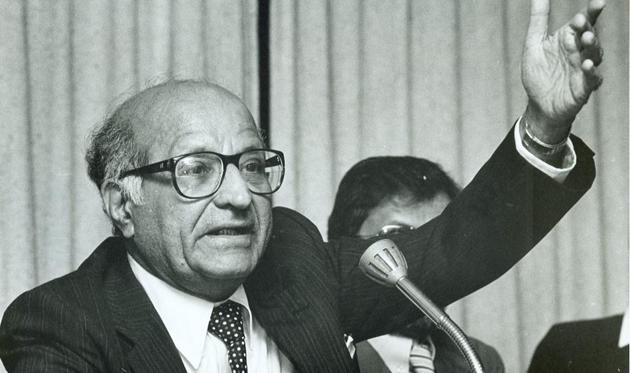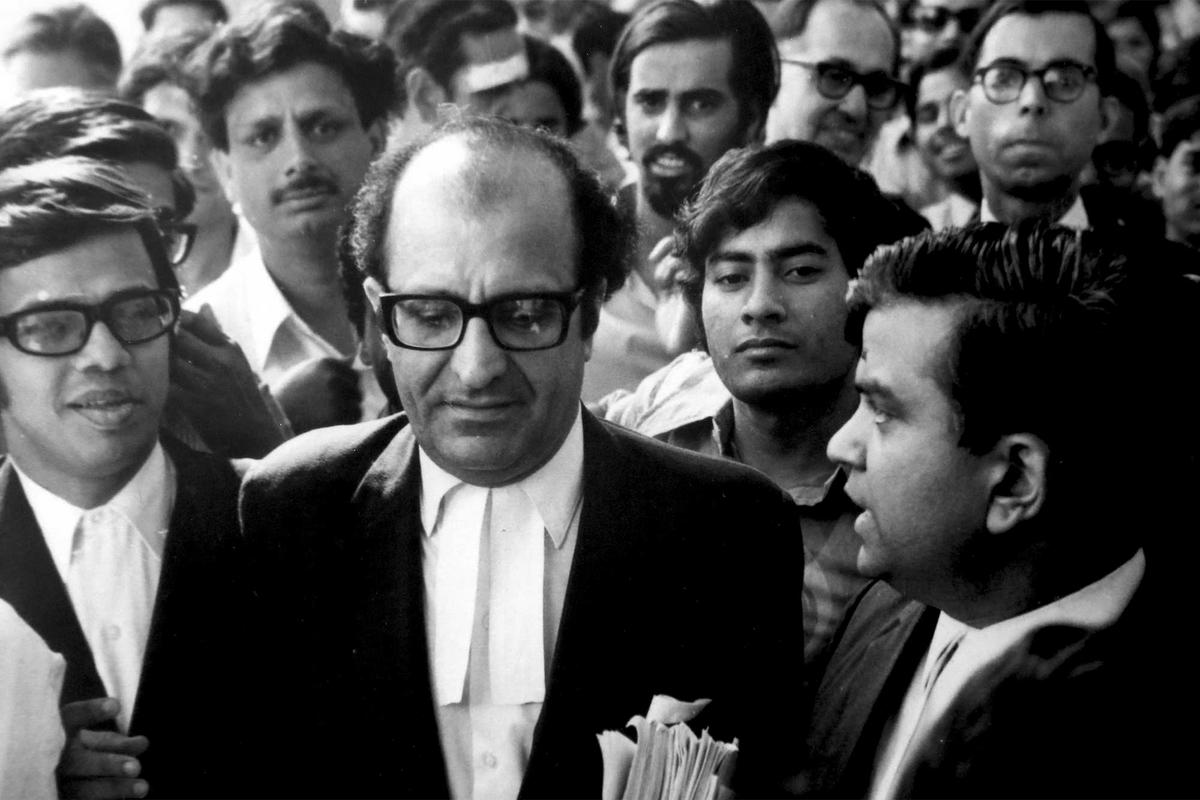Nani Ardershir Palkhivala was amongst one of the greatest intellectuals of modern India. Palkhivala started the tradition of his Budget post-mortem in Bombay’s Green Hotel in 1958. It was sponsored by The Forum of Free Enterprise.

Source- Hindustan Times
He used to hold it at Brabourne Stadium because no other venue in Mumbai was big enough to accommodate his growing audience. Vijay Merchant famously remarked, “Mr Palkhivala has brought the crowds back to Brabourne Stadium.”
was born on 16 January 1920 in the Bombay Presidency of British India to a Parsi working-class family and spent his childhood at Nana Chowk, Bombay. When he was denied the post of an English professor at Bombay University, he enrolled himself at Government Law College in what was then Bombay.
In 1946, he passed his Bar and his focus was on commercial and tax law. He joined the Tata Group in 1961, became a director of Tata Sons at the young age of 41 years, and worked very closely with JRD Tata for over 30 years.
He held his audience spellbound by eloquently peppering his speech with judicial and literary references. Making a dry subject like the Budget analysis such a pleasant experience for all. His speech lasted an hour. He used to come straight from the court in his black advocate’s coat.
Palkhivala never kept his audience waiting and captured their attention by using quotes from English literature. However, he was direct and within two minutes his audience would know whether Palkhivala approved of the Budget or not. However, his criticism was gentle.

Source- The Better India
The press was provided with a summary of the speech beforehand. Prepared by Palkhivala himself. A reporter could reproduce it in his newspaper and make his job easier. His style appealed to the rich, poor and middle class alike. His ability to cut through economic complexity and make the Budget understandable to all earned him mass popularity.
Palkhivala continued this practice until 1994. When he stopped delivering his analysis, some believed it was owing to advancing years. But others said that he took the decision as he believed that post-liberalisation there was no need for great analysis.
Nani Palkhivala was a jurist-par-excellence. He engaged in some of the most critical constitutional battles, including that of Kesavananda Bharati vs State of Kerala (1973), where he successfully enunciated the doctrine of the basic structure of the Constitution.



















































































